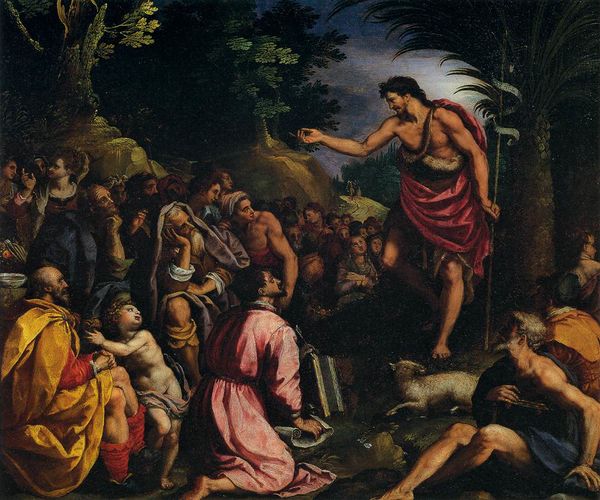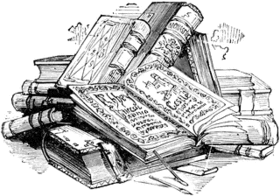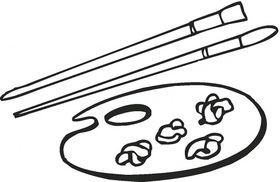Difference between revisions of "Category:Judas Iscariot (subject)"
| Line 5: | Line 5: | ||
{{WindowMain | {{WindowMain | ||
|title= [[People]] -> | |title= [[People]] -> Judas Iscariot (Home Page) | ||
|backgroundLogo= Bluebg_rounded_croped.png | |backgroundLogo= Bluebg_rounded_croped.png | ||
|logo= Logo.png | |logo= Logo.png | ||
| Line 19: | Line 19: | ||
}} | }} | ||
{{WindowMain | {{WindowMain | ||
|title= | |title= Judas Iscariot -- Overview | ||
|backgroundLogo= Bluebg_rounded_croped.png | |backgroundLogo= Bluebg_rounded_croped.png | ||
|logo = logo.png | |logo = logo.png | ||
|px= 38 | |px= 38 | ||
|content= | |content= | ||
| Line 153: | Line 74: | ||
*[http://en.wikipedia.org/wiki/Judas_Iscariot Wikipedia] | *[http://en.wikipedia.org/wiki/Judas_Iscariot Wikipedia] | ||
*[http://www.newadvent.org/cathen/08539a.htm CathEn] | *[http://www.newadvent.org/cathen/08539a.htm CathEn] | ||
}} | |||
{{WindowMain | |||
|title= Judas Iscariot -- Highlights | |||
|backgroundLogo= Bluebg_rounded_croped.png | |||
|logo = contents.png | |||
|px= 38 | |||
|content= | |||
}} | }} | ||
{{WindowMain | {{WindowMain | ||
|title= | |title= Judas Iscariot -- Sources | ||
|backgroundLogo= Bluebg_rounded_croped.png | |backgroundLogo= Bluebg_rounded_croped.png | ||
|logo = contents.png | |logo = contents.png | ||
| Line 218: | Line 146: | ||
{| id="mp-right" cellpadding="2" cellspacing="5" style="width:100%; vertical-align:top; background:#f5faff; background:transparent;" | {| id="mp-right" cellpadding="2" cellspacing="5" style="width:100%; vertical-align:top; background:#f5faff; background:transparent;" | ||
{{WindowMain | {{WindowMain | ||
|title= [[ | |title= [[Judas Iscariot (literature)]] | ||
|backgroundLogo= Bluebg_rounded_croped.png | |backgroundLogo= Bluebg_rounded_croped.png | ||
|logo= contents.png | |logo= contents.png | ||
| Line 225: | Line 153: | ||
}} | }} | ||
{{WindowMain | {{WindowMain | ||
|title= [[ | |title= [[Judas Iscariot (music)]] | ||
|backgroundLogo= Bluebg_rounded_croped.png | |backgroundLogo= Bluebg_rounded_croped.png | ||
|logo= history.png | |logo= history.png | ||
| Line 232: | Line 160: | ||
}} | }} | ||
{{WindowMain | {{WindowMain | ||
|title= [[ | |title= [[Judas Iscariot (cinema)]] | ||
|backgroundLogo= Bluebg_rounded_croped.png | |backgroundLogo= Bluebg_rounded_croped.png | ||
|logo= history.png | |logo= history.png | ||
| Line 239: | Line 167: | ||
}} | }} | ||
{{WindowMain | {{WindowMain | ||
|title= [[ | |title= [[Judas Iscariot (art)]] | ||
|backgroundLogo= Bluebg_rounded_croped.png | |backgroundLogo= Bluebg_rounded_croped.png | ||
|logo= history.png | |logo= history.png | ||
Revision as of 18:19, 28 December 2015
|
< Choosing of the Twelve -- Betrayal of Judas -- Anointing at Bethany -- Last Supper -- Arrest of Jesus -- Death of Judas >
Judas Iscariot -- Overview Judas Iscariot is mentioned only in Christian sources (Mark, Matthew, Luke-Acts, and John), where is consistently indicated as "the betrayer" of Jesus.
Since the lack of evidence outside the Christian tradition makes it virtually impossible any attempt at a historical reconstruction of the life of Judas Iscariot, scholarly discussion is limited to details of the tradition. For instance, some interpret the name "Iscariot" as "man of Karioth" (which will make Judas the only apostle from Judea), or "man from Issachar"; others have suggested that it could be a corrupted form of sikarios ("assassin"). Gabriele Boccaccini, University of Michigan Judas Iscariot, in literature & the artsThe term Judas has entered many languages as a synonym for betrayer, and Judas has become the archetype of the traitor in Christian art and literature. Modern fiction has produced a more complex figure, by speculating freely on the motives of his "betrayal." Many attempts has been made to absolve Judas from any charge, claiming that he acted according to the instructions he received from Jesus. This view of Judas Iscariot is reflected in the recently discovered Gospel of Judas and was also featured in Robert Graves's novel King Jesus, Michael Moorcock's novel Behold the Man, Morley Callaghan's novel A Time for Judas, José Saramago's novel The Gospel According to Jesus Christ, Éric-Emmanuel Schmitt's novel The Gospel According to Pilate and in Gerald Messadié's novel Judas le bien-aimé. Very popular has also become the interpretation of Judas as a zealot (or better a sikarios), sometimes in relation with Barabbas. This view was taken by Ferdinando Petruccelli della Gattina (1867), and also featured in the movie King of Kings (1959), in Taylor Caldwell's 1978 novel I, Judas and in the miniseries Jesus of Nazareth by Zeffirelli. Gabriele Boccaccini, University of Michigan
Related subjectsExternal links
Judas Iscariot -- Highlights
Judas Iscariot -- Sources Gospel of MarkMark 3:19 (NRSV) -- [Jesus appointed the Twelve, including]] Judas Iscariot, who betrayed him. Mark 14:10-11 (NRSV) -- [10] Then Judas Iscariot, who was one of the twelve, went to the chief priests in order to betray him to them. [11] When they heard it, they were greatly pleased, and promised to give him money. So he began to look for an opportunity to betray him. Mark 14:43 (NRSV) -- Immediately, while he was still speaking, Judas, one of the twelve, arrived; and with him there was a crowd with swords and clubs, from the chief priests, the scribes, and the elders. Gospel of MatthewMatt 10:4 (NRSV) -- [Jesus appointed the Twelve, including]] Judas Iscariot, who betrayed him. 26:14-16 (NRSV) -- [14] Then one of the twelve, who was called Judas Iscariot, went to the chief priests [15] and said, "What will you give me if I betray him to you?" They paid him thirty pieces of silver. [16] And from that moment he began to look for an opportunity to betray him. 26:47-50 (NRSV) -- 47 While he was still speaking, Judas, one of the twelve, arrived; with him was a large crowd with swords and clubs, from the chief priests and the elders of the people. 48 Now the betrayer had given them a sign, saying, "The one I will kiss is the man; arrest him." 49 At once he came up to Jesus and said, "Greetings, Rabbi!" and kissed him. 50 Jesus said to him, "Friend, do what you are here to do." Then they came and laid hands on Jesus and arrested him. Matt 27:3-10 (NRSV) -- 3 When Judas, his betrayer, saw that Jesus was condemned, he repented and brought back the thirty pieces of silver to the chief priests and the elders. 4 He said, "I have sinned by betraying innocent blood." But they said, "What is that to us? See to it yourself." 5 Throwing down the pieces of silver in the temple, he departed; and he went and hanged himself. 6 But the chief priests, taking the pieces of silver, said, "It is not lawful to put them into the treasury, since they are blood money." 7 After conferring together, they used them to buy the potter's field as a place to bury foreigners. 8 For this reason that field has been called the Field of Blood to this day. 9 Then was fulfilled what had been spoken through the prophet Jeremiah, "And they took the thirty pieces of silver, the price of the one on whom a price had been set, on whom some of the people of Israel had set a price, 10 and they gave them for the potter's field, as the Lord commanded me." Gospel of LukeLuke.6.16 (NRSV) -- [Jesus appointed the Twelve, including]] Judas Iscariot, who became a traitor. Luke.22.3 (NRSV) -- 2 The chief priests and the scribes were looking for a way to put Jesus to death, for they were afraid of the people. 3 Then Satan entered into Judas called Iscariot, who was one of the twelve; 4 he went away and conferred with the chief priests and officers of the temple police about how he might betray him to them. 5 They were greatly pleased and agreed to give him money. 6 So he consented and began to look for an opportunity to betray him to them when no crowd was present. Luke.22.47-48 (NRSV) -- [47] While he was still speaking, suddenly a crowd came, and the one called Judas, one of the twelve, was leading them. He approached Jesus to kiss him; [48] but Jesus said to him, "Judas, is it with a kiss that you are betraying the Son of Man?" Acts of ApostlesActs 1:15-26 (NRSV) -- [15] In those days Peter stood up among the believers (together the crowd numbered about one hundred twenty persons) and said, [16] "Friends, the scripture had to be fulfilled, which the Holy Spirit through David foretold concerning Judas, who became a guide for those who arrested Jesus-- [17] for he was numbered among us and was allotted his share in this ministry." [18] (Now this man acquired a field with the reward of his wickedness; and falling headlong, he burst open in the middle and all his bowels gushed out. 19 This became known to all the residents of Jerusalem, so that the field was called in their language Hakeldama, that is, Field of Blood.) 20 "For it is written in the book of Psalms, 'Let his homestead become desolate, and let there be no one to live in it'; and 'Let another take his position of overseer.' 21 So one of the men who have accompanied us during all the time that the Lord Jesus went in and out among us, 22 beginning from the baptism of John until the day when he was taken up from us--one of these must become a witness with us to his resurrection." 23 So they proposed two, Joseph called Barsabbas, who was also known as Justus, and Matthias. 24 Then they prayed and said, "Lord, you know everyone's heart. Show us which one of these two you have chosen 25 to take the place in this ministry and apostleship from which Judas turned aside to go to his own place." 26 And they cast lots for them, and the lot fell on Matthias; and he was added to the eleven apostles. Gospel of JohnJohn 6:70-71 -- [70] Jesus answered them, "Did I not choose you, the twelve? Yet one of you is a devil." [71] He was speaking of Judas son of Simon Iscariot, for he, though one of the twelve, was going to betray him. John.12.3-8 -- 3 Mary took a pound of costly perfume made of pure nard, anointed Jesus' feet, and wiped them with her hair. The house was filled with the fragrance of the perfume. 4 But Judas Iscariot, one of his disciples (the one who was about to betray him), said, 5 "Why was this perfume not sold for three hundred denarii and the money given to the poor?" 6 (He said this not because he cared about the poor, but because he was a thief; he kept the common purse and used to steal what was put into it.) 7 Jesus said, "Leave her alone. She bought it so that she might keep it for the day of my burial. 8 You always have the poor with you, but you do not always have me." John.13.2 -- 2 During the supper, the devil had already put it into the heart of Judas son of Simon Iscariot to betray him. John 13:21-31 (NRSV) -- 21 After saying this Jesus was troubled in spirit, and declared, "Very truly, I tell you, one of you will betray me." 22 The disciples looked at one another, uncertain of whom he was speaking. 23 One of his disciples--the one whom Jesus loved--was reclining next to him; 24 Simon Peter therefore motioned to him to ask Jesus of whom he was speaking. 25 So while reclining next to Jesus, he asked him, "Lord, who is it?" 26 Jesus answered, "It is the one to whom I give this piece of bread when I have dipped it in the dish." So when he had dipped the piece of bread, he gave it to Judas son of Simon Iscariot. 27 After he received the piece of bread, Satan entered into him. Jesus said to him, "Do quickly what you are going to do." 28 Now no one at the table knew why he said this to him. 29 Some thought that, because Judas had the common purse, Jesus was telling him, "Buy what we need for the festival"; or, that he should give something to the poor. 30 So, after receiving the piece of bread, he immediately went out. And it was night. 31 When he had gone out, Jesus said, "Now the Son of Man has been glorified, and God has been glorified in him. John 18:2-9 (NRSV) -- 2 Now Judas, who betrayed him, also knew the place, because Jesus often met there with his disciples. 3 So Judas brought a detachment of soldiers together with police from the chief priests and the Pharisees, and they came there with lanterns and torches and weapons. 4 Then Jesus, knowing all that was to happen to him, came forward and asked them, "Whom are you looking for?" 5 They answered, "Jesus of Nazareth." Jesus replied, "I am he." Judas, who betrayed him, was standing with them. 6 When Jesus said to them, "I am he," they stepped back and fell to the ground. 7 Again he asked them, "Whom are you looking for?" And they said, "Jesus of Nazareth." 8 Jesus answered, "I told you that I am he. So if you are looking for me, let these men go." 9 This was to fulfill the word that he had spoken, "I did not lose a single one of those whom you gave me." Papias"Judas walked about in this world a sad example of impiety; for his body having swollen to such an extent that he could not pass where a chariot could pass easily, he was crushed by the chariot, so that his bowels gushed out." |
|
Pages in category "Judas Iscariot (subject)"
The following 135 pages are in this category, out of 135 total.
1
- Iudas Iscariotes (1552 Naogeorg), play
- Judas der Ertz-Schelm (1686 Abraham a Sancta Clara), novel
- Judas Iscariote (1722 Zamora), play
- Judas Ischariotes (Judas Iscariot / 1765c Brixi), oratorio
- Judas (1843 Starkey), play
- Judas Iscariot (1848 Horne), play
- (+) Les mémoires de Judas (The Memoirs of Judas / 1867 Petruccelli della Gattina), novel
- Der Messias (1869 Gensichen), play
- Le memorie di Giuda (1870 Petruccelli della Gattina), novel (Italian ed.)
- The Autobiography of Judas Iscariot (1884 Hart), novel
- Judas (1886 Hedberg), novel
- Cristo alla festa di Purim (Christ at the Feast of Purim / 1887 Bovio), play (Italian)
- A Son of Issachar (1890 Brooks), novel
- Judas (1895 Hedberg), play
- John: A Tale of King Messiah (1896 Woods), novel
- Judas (1901 Lacerda), play
- The Gospel of Judas Iscariot (1902 Baldwin), novel
- Ish Kerioth (1903 Alborn), novel
- Iuda Iskariot i drugie (Judas Iscariot / 1907 Andreyev), novel
- Judas (1907 Monro), poetry
- The Testament of Judas (1908 Byatt), novel
- Dernière nuit de Judas (1908 Gebhart), novel
- Judas (1909 Hauptmann), play
- Judas (1910 De Kay), play
- Giuda (Judas / 1911 Frusta), short film
- The Diary of Judas Iscariot (1912 Page), novel
- Judas (1913 Kemp), play
- Judasz z Kariothu (1913 Rostworowski), play
- Judasz (1917 Przerwa-Tetmajer), play
- Giuda (1918 Pea), play
- Judas Iscariot (1919 Doroshevich), novel
- Four Hitherto Unpublished Gospels (1920 Barton), novel
- Die Judastragödie (1920 Friedell), play
- Judas Iskariot (1920 Schwarzkopf), novel
- The Autobiography of Judas Iscariot (1920 Sheppard), novel
- Judas (1923 Moore), poetry
- Giuda (1923 Ratti), play
- Judas Iscariot (1923 Thurston), play
- La femme de Judas (1924 Malaurie), novel
- Judas Iscariot (1925 Cullen), poetry
- Judas; or, The Betrayal (1926, Pepler), play
- The Tragedy of Judas Iscariot (1926 Tavani), play
- The Gospel According to Judas Iscariot (1929 Bates), novel
- Yehudah ish-Kerayot (1929 Bistritzky), play
- Juda de Kérioth (1929 Maeterlinck), play
- Barter (1929 Nagle), play
- Iscariot: The Story of Judas (1929 Roth), novel
- Judas (1931 Gurk), novel
- L'apôtre Judas (1936 Hirsch), novel
- Giuda Iscariota (1937 Lanza del Vasto), novel
- (+) Judas (1939 Linklater), novel
- Chains of Shadows (1943 Sanders), novel
- L'Évangile de Judas (1945 Morel), novel
- La farce de Judas (1947 Morel), play
- Abundantly Pardoned (1949 Morgan), novel
- The Man of Kerioth (1949 Sava), novel
- The Triumph of Judas Iscariot (1950 Yanikian), novel
- A Tear for Judas (1951 Blythe), novel
- Judas (1951 Rabi), play
- Judas of Kerioth (1953 Dillon), novel
- Un nommé Judas (1954 Puget), play
- Giuda (1955 Fochi), play
- Judas (1958 Heum), novel
- Judas Iskarioth (1960 Verbrugghen), novel
- Judas Iscariot (1961 Lévitt), novel
- יהודה איש־קריות / Yehudah ish-Kerayot (Judas Iscariot / 1962 Mossinsohn), novel
- Iscariot (1962 Peto), novel
- Judas (1963 Harlow) = יהודה איש־קריות / Yehudah ish-Kerayot (1962 Mossinsohn), novel (English ed.)
- Apóstol sombrío (1967 Gutierrez y Gonzalez), novel
- Juudas (Judas / 1969 Kalmus), novel (Estonian)
- The Knifeman (1969 Rayner), novel
- The Gospel of Judas Iscariot (1969 Savelle), novel
- Der Mann am Strick (The Man on the Rope / 1970 Deickert), TV film
- Judas Iscariot--Traitor? (1971 Bloom), novel
- My Enemy, My Lord (1972 Lavin), novel
- Le vrai mystère de la passion de Judas (1972 Suarès), play
- Judas! (1972 Van Greenaway), novel
- Wedlug Judasza (apokryf) (1973 Panas), novel
- Witness to Yesterday: Judas Iscariot (1974 Kellar), TV film
- Il libro segreto di Giuda (1974 Palli), novel
- (+) L'opera del tradimento (The Work of Betrayal / 1975 Brelich), novel
- Der Fall Judas (1975 Jens), novel
- Judas (1975 Tosi), novel
- Io, Giuda = I, Judas (1977 @1977 Caldwell, Stearn / Oddera), novel (Italian ed.)
- Judas (1977 Krefetz), novel
- La gloria (The Glory / 1978 Berto), novel
- Judas Iskariots knutna händer (1978 Evander), novel
- L'oeuvre de trahison = L'opera del tradimento (The Work of Betrayal / 1979 @1975 Brelich / Piasecki), novel (French ed.)
- David's Decision (1979 Cargas), children's novel
- The Two Loves (1979 McCrossen), novel
- A Time for Judas (1983 Callaghan), novel
- Mémoires de Judas (1985 Bourgeade), novel
- Trenta denari (1986 Ulivi), novel
- The Work of Betrayal = L'opera del tradimento (1988 @1975 Brelich / Rosenthal), novel (English ed.)
- Giuda (1988 Zullino), non-fiction
- E Giuda disse: Gesù, chi sei? (1989 Del Rio), novel
- Vangelo di Giuda (1989 Pazzi), novel
- Testvérem, Júdás (1992 Yerby / Tamás) = Judas, My Brother (1968 Yerby), novel (Hungarian ed.)
- Judas Iscariote (1993 Reznikoff), novel
- The Lost Testament of Judas Iscariot (1994 Dickinson), novel
- Judas: Betrayer or Friend of Jesus? (1996 Klassen), book
- The Book of Deborah (1997 Whitehouse), novel
- Carnet secret de Judas Iscariote (1998 Makey), novel
- La notte del lupo (1998 Vassalli), novel
- Judas the Gentile (1999 Lliteras), novel
2
- (+) The Gospel of Judas (2000 Mawer), novel
- Giuda Iscariota (Judas Iscariot / 2000 Musso), play
- Gli amici di Gesù: Giuda (Close to Jesus: Judas / 2001 Mertes), TV film
- Der Kuss im Garten (2002 Bieri), novel
- The Gospel According to Judah (2002 Dunne-Brady), novel
- Το ευαγγέλιο του Ιούδα = The Gospel of Judas (2002 Mawer / Sakellaropoulou), novel (Greek ed.)
- Judas (2004 Carner), TV film
- Judas Mercator (2004 Davies), music
- Judas (2004 Kilvington), novel
- The Last Days of Judas Iscariot (2006 Guirgis), play
- Juudaksen evankeliumi: johdanto, käännos ja tulkinta (The Gospel of Judas: Introduction, Translation and Interpretation / 2006 Marjanen, Dunderberg), book (Finnish)
- My Name Was Judas (2006 Stead), novel
- (+) The Gospel According to Judas, by Benjamin Iscariot (2007 Archer), novel
- (+) Judas le bien-aimé (Judas the Beloved / 2007 Messadié), novel
- Parole di Giuda (2007 Puppa), play
- Judas: The Gospel of Betrayal (2007 Ramsay), novel
- L'ombre de Judas (2008 Champion), novel
- Die gehäutete Zeit (2008 Saeger), novel
- Field of Blood (2008 Wilson), novel
- El legado de Judas (2010 Miralles, Bruna), novel
- Necessary Heartbreak (2010 Sullivan), novel
- Three Versions of Judas (2010 Walsh), book
- Valley of Bones (2010 Wilson), novel
- Judas (2011 Gaga, Khayat), song
- Judas (2011 Gibson), music video
- The Judas Gospel (2011 Myers), novel
- The Gospels of the Marginalized (2012 Meyer), book
- The Judas Coin (2012 Simonson), graphic novel
- Judas Iscariot, Damned or Redeemed: A Critical Examination of the Portrayal of Judas in Jesus Films, 1902-2014 (2016 Hebron), book
Media in category "Judas Iscariot (subject)"
The following 25 files are in this category, out of 25 total.
- 1763 * Thompson.jpg 169 × 299; 6 KB
- 1909 Bour (film).jpg 220 × 286; 17 KB
- 1920 Dreyer (film) 2.jpg 192 × 256; 12 KB
- 1954 Gil (film).jpg 836 × 1,200; 203 KB
- 1968 * Yerby (novel).jpg 310 × 499; 37 KB
- 1977 * Caldwell Stearn (novel).jpg 1,063 × 1,500; 189 KB
- 1988 Benvenuti (film).jpg 296 × 417; 94 KB
- 1991 * Maccoby.jpg 914 × 1,421; 434 KB
- 2006 * Ehrman.jpg 329 × 499; 39 KB
- 2006 * Kasser Meyer Wurst.jpg 351 × 499; 34 KB
- 2006 Krosney.jpg 348 × 499; 38 KB
- 2006 Noffke.jpg 201 × 332; 10 KB
- 2006 Robinson.jpg 232 × 346; 27 KB
- 2007 De Conick.jpg 320 × 500; 61 KB
- 2007 Gathercole.jpg 324 × 499; 34 KB
- 2007 * Kassel Wurst.jpg 674 × 1,000; 121 KB
- 2007 Meyer.jpg 323 × 500; 36 KB
- 2007 * Pagels King.jpg 323 × 500; 39 KB
- 2009 Gubar.jpg 400 × 599; 90 KB
- 2012 Devoti.jpg 310 × 499; 15 KB
- 2013 * Lee (novel).jpg 400 × 613; 48 KB
- 2015 Ameur (film).jpg 194 × 259; 6 KB
- 2016-T * Oz en (novel).jpg 400 × 604; 202 KB
- 2021 Stener.jpg 352 × 499; 16 KB
- 2022 * Brakke.jpg 400 × 608; 141 KB
































